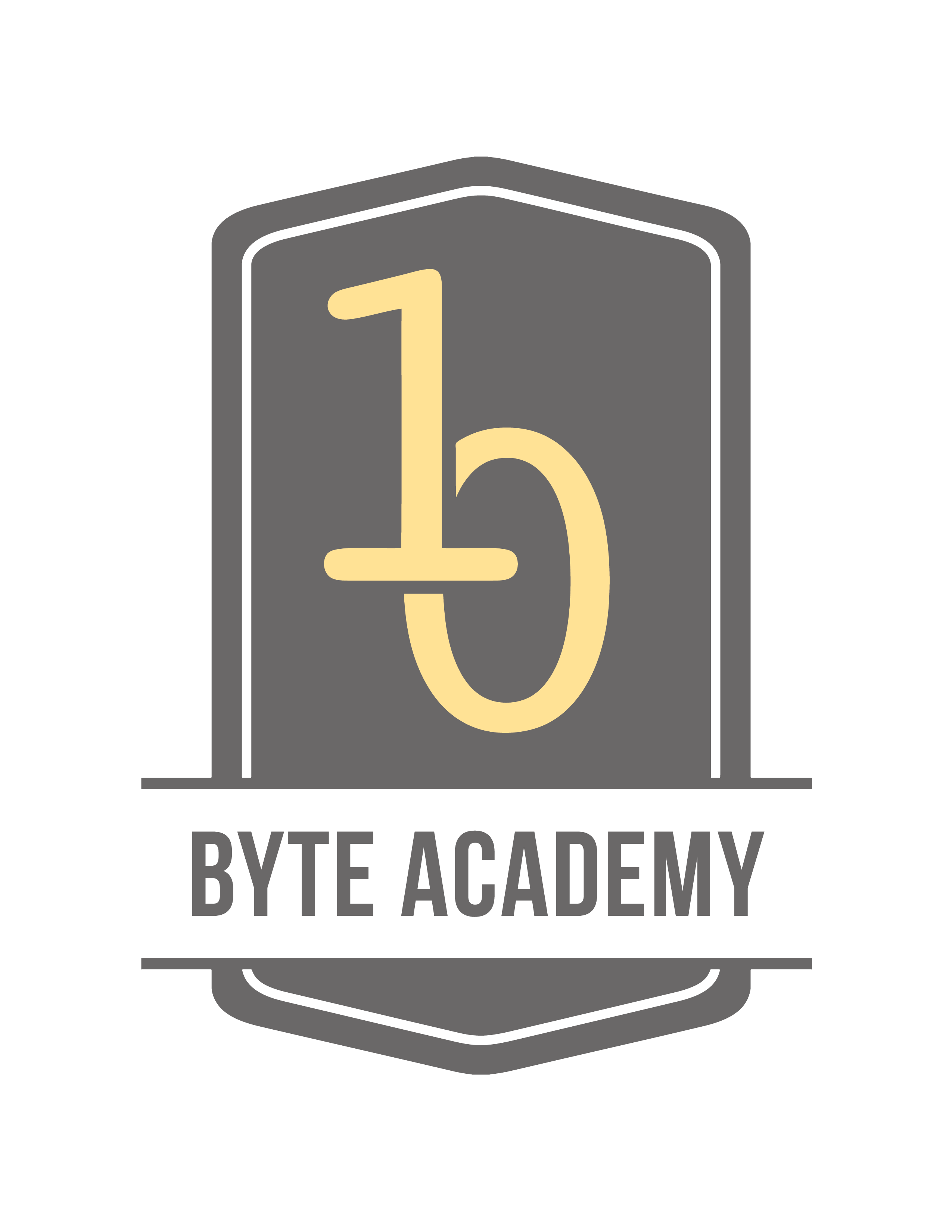Below we interview Liz, a fullstack engineer, and coding bootcamp grad. Liz works at fintech company Fabric, where she is one of four bootcamp graduates on their nine-person engineering team! Below, Liz shares her experience and provides career tips and insight including regarding employer perception of bootcamp grads and salary negotiations.
Please provide an overview of your background. What did you do before enrolling in coding bootcamp? College major?
I was in film and theater, doing freelance production design. I had a lot of visual design training from school, and I created illustrations and animations for projection designs. I earned a BFA in Production Design from the Savannah College of Art & Design and an MFA in Theater-Design from Temple University. Toward the end of my MFA, my design jobs began branching out into logo, web and app design. That naturally led to working on websites with Wordpress, Squarespace and HTML and CSS, which I had tooled around with since high school. I’d also taken a class on web design in grad school.
Fortunately, Fabric was your first interview and you got the job - congrats! What do you think contributed/is the “secret” to this success?
Upon graduation, I was accepted into a teaching fellow program to instruct the bootcamp cohort that started right after I graduated. It gave me a great opportunity to review all the material I had worked through as a student. Being a teaching fellow required a lot of troubleshooting skills to help students when they were stuck, and it was a great way to practice reading code I hadn’t written. I also practiced solving algorithm problems pretty regularly from Cracking the Coding Interview.
Did your classmates seem as fortunate? What is your general sense of their experiences?
I think my cohort and the cohort for which I was a teaching fellow have had similar success. A lot of former students and classmates are already on their second coding positions, as it’s pretty rare for someone to stay at their first coding job as long as I have. I’m lucky I’ve found a place I wanted to stay , but I think that mobility is a success for my peers, too. After you work at one place for half a year or so, you gain some experience and have a better idea of what you want out of a developer job so that you can find t a job someplace about which you are very passionate
How many at Fabric are from bootcamp backgrounds (approximately)?
Four of our nine-person engineering team have bootcamp backgrounds.
Do you notice any differences between bootcampers and more traditionally trained engineers? If so, please elaborate.
As someone with an art and design background, I am pretty well rounded. It’s very easy for me to have conversations with our design team in order to help bridge the gap between engineering and design. So I think bootcamp grads have a lot to offer through their other talents and skills in addition to pure coding expertise.
In the interview process, I see very little difference between bootcamp grads and traditional CS degree grads. If anything, bootcamp grads often come to the interview with more general problem-solving skills and are more readily able to attack the types of questions we’re asking, because they’ve studied the exact frameworks and problems we’re providing.
We’ve noticed that some companies have been skeptical of bootcamp hires. Did you notice this at all during your bootcamp experience or other? You told me a great story over the phone!
I definitely noticed it during my job search, and I heard a lot of stories from my classmates during their job searches:
One meetup geared toward hiring software engineers featured a panel of four or five hiring managers at different companies. When panelists were asked about how they handle bootcamp grads, each said something along the lines of, “We push them to apply to our internships. They’re not really ready for our full-time positions.” I also distinctly remember one of the managers using a metaphor that was something like coding bootcamp grads know how to drive the car, but engineers with CS degrees know how to take the whole car apart. My response is generally that most engineering jobs require a driver, not a mechanic.
I heard an amazing story from one of my former classmates, who applied for a job at a large finance tech company. She did well on all the interviews, but the company only offered her an internship with very low pay. When she tried to negotiate, the hiring manager told her it was non-negotiable, so she turned it down that Friday. On Monday morning, she was offered the full-time position, with the salary that went with it.
Wow, good for her! That story also reminds me of controversy regarding gender differences in salary negotiation and pay. Do you think being a woman in tech had any impact with this experience? What about in the heavily male-dominated tech and finance industries more generally?
I can’t say for sure one way or the other if it was my classmate’s age, gender, race or bootcamp background. I’d like to give the person behind the original offer the benefit of the doubt, in that they, themselves, might not know exactly why they undervalued my classmate. That’s the insidious nature of unconscious bias, it’s not a conscious belief, it’s a socialized idea manifesting itself. I do know that I’ve seen the undervaluing behavior around initial positions connected to bootcamp grads specifically in this way, but none of our many facets as human beings exist in a vacuum, so your guess is as good as mine.
Please provide an overview of developer needs and what Fabric looks for when hiring?
All engineers at Fabric, with the exception of one, work on both ends of the stack, so we generally look for full-stack engineers. We look for someone who could start contributing very quickly to our code base, and with great communication skills.
Seeking these skills is reflected in each interview problem: First, a candidate must demonstrate a level of proficiency with the frameworks we use and in the problems we present. Second, the candidate needs to demonstrate excellent problem-solving skills. We want to see if a person can solve an unfamiliar problem with only a little bit of guidance.
Communication is key because we collaboratively work on code architecture very regularly. Being able to communicate what you’re thinking, or provide knowledge share on something you build, is key to succeeding on the Fabric team.
Please provide career tips for current bootcampers.
Someone gave me really good advice when I was starting my job search. She had just accepted an offer for her first engineering job after working in a tangential but non-engineering position at Facebook. She was completely self-taught.
She said there are three things you can focus on when preparing for a job search: algorithms, networking and projects. You can’t do all three, but you should do more than one. I thought that was really solid advice. I focused on algorithms and networking. I went to a lot of Meetup events while I was in bootcamp and during my teaching fellowship. I also studied one or two algorithms a week from Cracking the Coding Interview and CodeWars while I was a teaching fellow, for three months. My network got me a recommendation for my job, and my algorithms practice helped me a lot in my interview.
It’s funny you mention Cracking The Coding interview as Byte Academy hosts regular meetups focused on this which we integrate into our overall career curriculum for students and our Tuition Reimbursement job guarantee. Did you attend any of such events? Please elaborate on why this book is such as great guide!
I didn’t attend any events specifically around Cracking the Coding Interview, but as a teaching fellow, I did work through problems in the book with other teaching fellows for practice. The book has good general tips on how to approach whiteboard problems that, when followed, are an asset to any technical interview question. If you are very familiar with many algorithms and data structures, when presented with a whiteboarding problem you will recognize the situation and apply the correct algorithm--which is something that someone with a CS degree who took multiple semesters of data structures and algorithm classes may be able to draw on. As a fresh bootcamp grad, it’s difficult to have all that context. Applying the approach laid out in Cracking the Coding Interview may allow you to solve the algorithm with problem-solving skills. For some companies, great problem-solving skills are more valuable than memory recall.
Please feel free to share anything additional that maybe helpful!
Remember that the people you encounter during bootcamps are your first connections in the tech world. Treat them with professionalism and respect. I saw quite a few people in bootcamp treating it like it was a frat --not a good look, to say the least.
Liked what you read? Checkout Byte Academy's Data Science and Python bootcamp courses.



